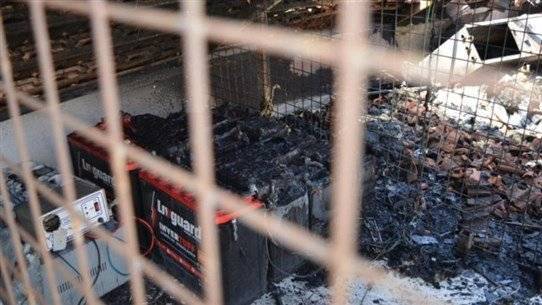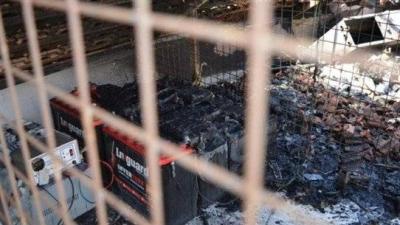Chaos is sweeping Lebanon on all levels. Solar energy has entered this "Lebanese turmoil" and is being handled in a chaotic manner regarding installation, operation, and loading. According to Ali Bishara, a technical auditor in energy systems and public safety, "The solar energy system is a small power station." Therefore, all risks associated with power stations must be taken into account. He clarifies, “All the specifications of the station are now present in our homes: electricity generation, conversion from direct current to alternating current, and storage.” This doubles the risks and requires putting in place all the necessary protections. He believes that “most homes in Lebanon today are outside the protection circuit due to the lack of an earth line (grounding) that protects against high voltage from lightning strikes.”
### Time Bombs
As for the solar energy market in Lebanon, Bishara sees many issues due to the lack of regulation on imports. He asks, “Who regulates safety standards for the installed devices, and who grants licenses to qualified technicians?” He then recounts his observations of systems that are like “time bombs” after those who installed them have "disconnected the connections between the panels and replaced them with primitive connections using plastic adhesives." He notes the potential for the panels to catch fire for this reason, as these connections cannot withstand the large electrical current produced by the panels during peak hours. Additionally, a fire may occur due to the absence of a fuse on the power outlets of the panels, meaning that any electrical short will lead to a large current passing through the panel that can cause it to ignite. However, he reassures that “the incidence of fires from the panels does not exceed 2% of the total fires caused by electricity.” He places all the problems that may arise onto the state, which has abandoned energy production and pushed people towards these options.
### Accumulation of Technical Problems
The problems do not end there, according to renewable energy expert Ahmad Barakat, who adds to the causes of panel fires: “Failure to respect the quality of electrical cables required for the direct current coming from the solar panels.” Direct current requires thicker cables, and any tampering in this regard to save money by purchasing thinner ones will lead to an increase in the temperature of the electrical strip, hence a possibility of fire. Additionally, connecting the panels in uneven groups (for example, connecting a group of four panels to a group of three) increases the likelihood of fires associated with the panels.




